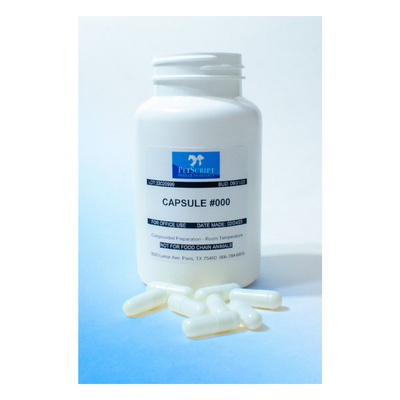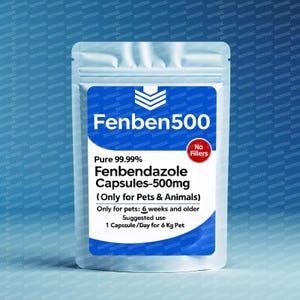Understanding the Perks and Uses of Fenbendazole in Veterinary Medicine
Fenbendazole has actually developed itself as an essential anthelmintic in vet medicine. Its capacity to target various parasitical infections makes it a valuable device for vets. The medication's system interferes with vital mobile processes in parasites, causing effective treatment results. Nonetheless, its safety profile differs between species, necessitating cautious factor to consider in its usage. Comprehending these dynamics can clarify fenbendazole's more comprehensive implications in veterinary treatment and recurring research study right into its potential beyond typical applications
Device of Activity of Fenbendazole

Typical Parasitic Infections Treated With Fenbendazole
A selection of parasitical infections are efficiently treated with fenbendazole, making it a functional option in veterinary medication. This anthelmintic agent is specifically efficient against nematodes, consisting of roundworms and hookworms, which typically influence canines and cats. It is also used for the therapy of cestodes, such as tapeworms, offering a wide spectrum of activity against both kinds of intestinal tract parasites. Furthermore, fenbendazole is helpful in managing infections triggered by protozoa, particularly Giardia, which can cause gastrointestinal distress in pets. Its efficiency encompasses dealing with specific lungworms in pooches and felines, addressing respiratory system health and wellness problems linked to these parasites. Overall, fenbendazole's capacity to target multiple parasitical varieties makes it a valuable device in veterinary technique, guaranteeing the health and wellness and health of animals impacted by these typical infections.
Safety and security and Efficiency in Various Animal Variety
The safety and effectiveness of fenbendazole differ amongst different animal species, emphasizing the importance of species-specific considerations in veterinary medication. In canines, fenbendazole is normally well-tolerated and effective against a series of stomach bloodsuckers, consisting of roundworms and hookworms. For felines, however, its use is much less common and might call for careful application due to prospective negative reactions.
In livestock, such as livestock and sheep, fenbendazole demonstrates performance versus numerous endoparasites, adding to improved wellness and performance. Nonetheless, the pharmacokinetics and prospective negative effects can vary substantially between types, necessitating mindful examination by vets.
Equines additionally react favorably to fenbendazole, especially for dealing with strongyles and ascarids, though dosage and administration courses have to be tailored to their distinct physiology. Comprehending these distinctions is important for maximizing treatment end results and making certain animal welfare throughout diverse species.
Administration and Dose Standards
Appropriate management and dose guidelines are vital for making best use of the restorative effects of fenbendazole while reducing potential side impacts. The dose commonly varies depending upon the types being dealt with, the particular problem, and the formula of fenbendazole utilized. fenbendazole 444. For pet dogs and felines, a typical dose is 50 mg/kg body weight, provided when daily for three consecutive days, however vets might readjust this based upon specific health assessments
It is very important to provide fenbendazole with food to improve absorption and lessen intestinal upset. The medicine is available in different kinds, including granules and paste, permitting flexible administration choices. Keeping track of the pet's response during and after therapy is suggested to confirm effectiveness and safety and security. Additionally, veterinary guidance is essential to figure out the suitable duration of treatment based on the type of parasitical infection being dealt with, assuring perfect outcomes for the pet's health.
Future Perspectives and Research Study on Fenbendazole
Research study on fenbendazole remains to evolve, concentrating on its possible applications beyond conventional antiparasitic uses. Current studies have explored its effectiveness in treating various types of cancer, especially in veterinary oncology. Initial information recommend that fenbendazole might hinder the development of tumor cells and improve the impacts of various other chemotherapeutic agents.
Additionally, scientists are exploring its role you can look here in managing gastrointestinal disorders in pets, highlighting its anti-inflammatory buildings. The versatility of fenbendazole for various types raises inquiries regarding its safety profiles and perfect application routines in varied populaces.
As passion expands, there is a need for detailed medical tests to establish evidence-based guidelines for these unique applications. Future research might additionally check out the mechanisms behind fenbendazole's results, possibly paving the method for cutting-edge therapeutic methods in vet medicine. The recurring expedition of fenbendazole can considerably boost therapy options for different vet problems.

Regularly Asked Questions
Is Fenbendazole Safe for Pregnant Animals?
The safety and security of fenbendazole for pregnant pets continues to be unpredictable. While some researches recommend very little threat, veterinarians usually recommend caution and useful link frequently recommend against its use throughout pregnancy unless the advantages plainly surpass prospective threats.
Can Fenbendazole Be Utilized in Livestock?
Fenbendazole is commonly used in livestock to treat different parasitic infections. 222 mg. Its efficacy against intestinal worms makes it a valuable anthelmintic, adding to enhanced wellness and performance in animals increased for food and fiber
What Are the Negative Effects of Fenbendazole?

The side results of fenbendazole might consist of intestinal disturbances, sleepiness, and allergies. In uncommon cases, much more severe reactions might occur, necessitating mindful tracking and assessment with a veterinarian throughout treatment.
Just How Does Fenbendazole Compare to Other Dewormers?
Fenbendazole uses broad-spectrum effectiveness versus various bloodsuckers, usually contrasting positively to various other dewormers. Its one-of-a-kind system targets various life stages, making continue reading this it reliable, while typically offering a beneficial security account compared to alternatives available on the market.
Can Fenbendazole Be Made Use Of for Dealing With Cancer Cells in Family Pets?
The capacity of fenbendazole in treating cancer in pet dogs has gathered rate of interest. Preliminary studies recommend it might prevent cancer cell growth, yet even more research study is essential to verify its efficacy and security in vet oncology.